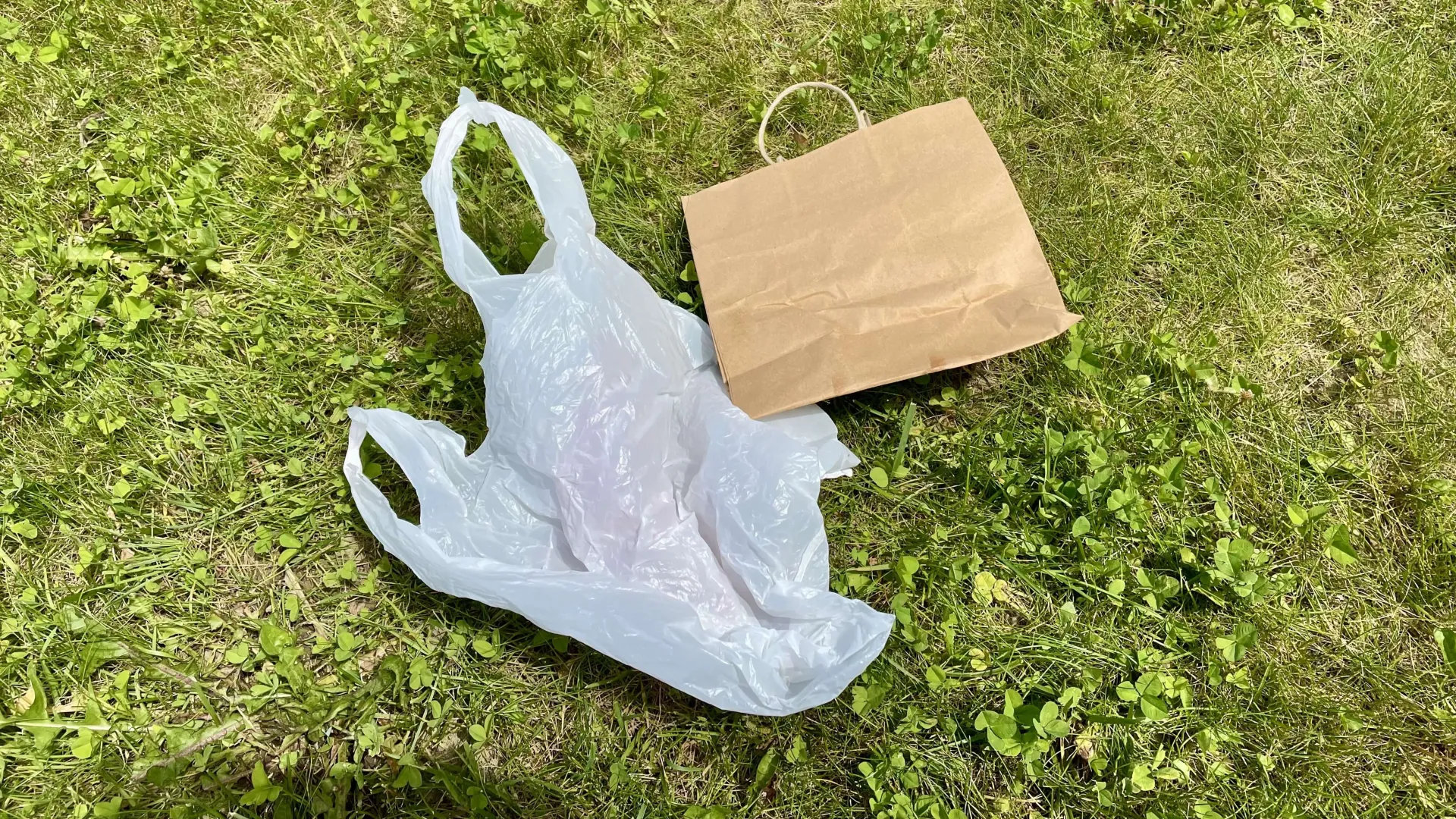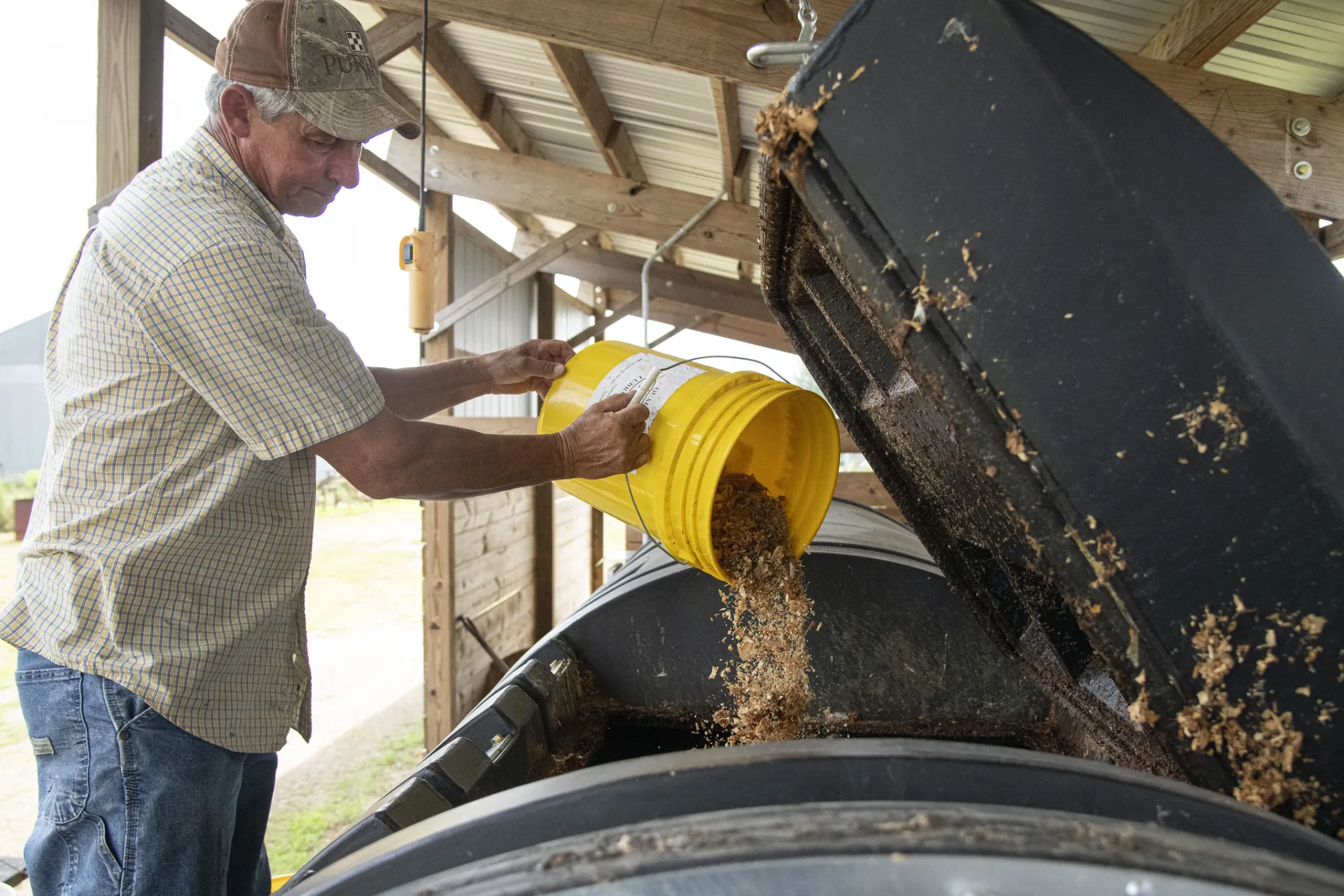In the midst of 2020 Covid measures, another change took place in Vermont: A law went into effect banning businesses from offering plastic bags to customers, with paper bags only available for a fee.
A 2023 analysis of a survey of hundreds of Vermonters found the law appeared to have worked. Plastic bag use in the state dropped 91%, and three-quarters of those surveyed approved of the approach.
Now, researchers at the University of Vermont have dug deeper into the 745-person survey conducted by the University of Vermont Center for Rural Studies.
The three-person team wanted to know more about how people had responded to the legislation, says UVM College of Agricultural and Life Sciences professor Qingbin Wang.
Wang is the lead author of a new peer-reviewed paper in the journal Environmental Economics and Policy Studies that does just that.
The researchers found the law’s strongest effect, by far, was a near-complete elimination of plastic bag use following the ban’s implementation—a 91% drop.
Paper bag use, meanwhile, increased by over 6% during the same period—though this was not a statistically significant change. The researchers surmise that having the option to substitute paper bags for plastic was a stronger driver of behavior than having to pay the new $0.10 fee.
The study also found that around 70% of respondents viewed the legislation positively, says Wang.
The survey also revealed some interesting patterns in how Vermonters now carry their purchases home. Some respondents switched readily to paper bags, substituting the easiest available alternative to plastic bags. Others who’d previously used paper bags responded more strongly to the fee, choosing to stop using them once they came with a $0.10 price tag. Some people continued using paper bags regardless of the fee. There were also respondents who had already been using reusable bags before the ban and continued to do so.
Wang attributes the ban’s success in part to what he calls the law’s “bottom-up” origins—Vermonters pushed legislators for the ban due to environmental concerns surrounding single-use plastic. Wang also believes that the law’s simplicity made its implementation more successful.
Study coauthor and UVM Gund Fellow Emily Belarmino notes that advance notice about the ban was also key to the law’s successful rollout and subsequent public approval of it. “Yes, it was effective, and people seem to be pleased with it, but I would surmise that part of that is because of the really good communication work that the state of Vermont did before implementation day,” she says.
Wang sees a potential lesson for other states pursuing similar laws. Given the slightly increased usage of paper bags that the researchers noted in relation to the plastic bag decrease, he says states should “consider both types of bags together.”
Study coauthor and UVM Gund Fellow Meredith Niles sees value in the research’s validation of the ban’s effectiveness. “I feel like the biggest finding here is that this legislation clearly had an impact on consumer plastic bag use and, equally importantly, that there was broad and wide public support for the plastic bag ban—and the public is generally satisfied with its implementation.” She added, “I think it demonstrates a great policy outcome, and that doesn’t always happen.”

